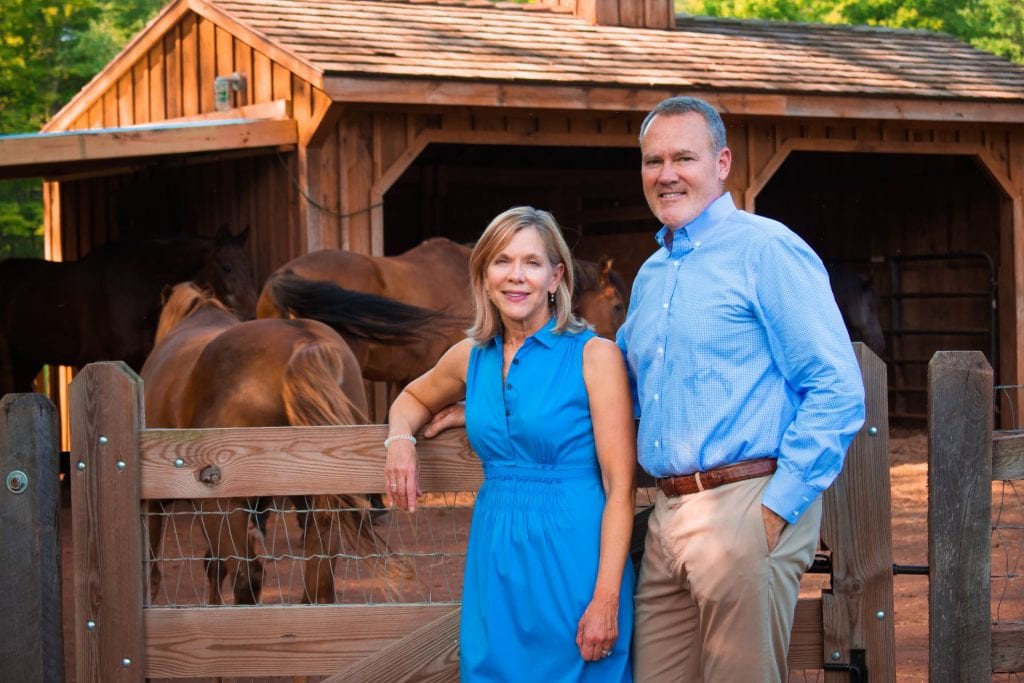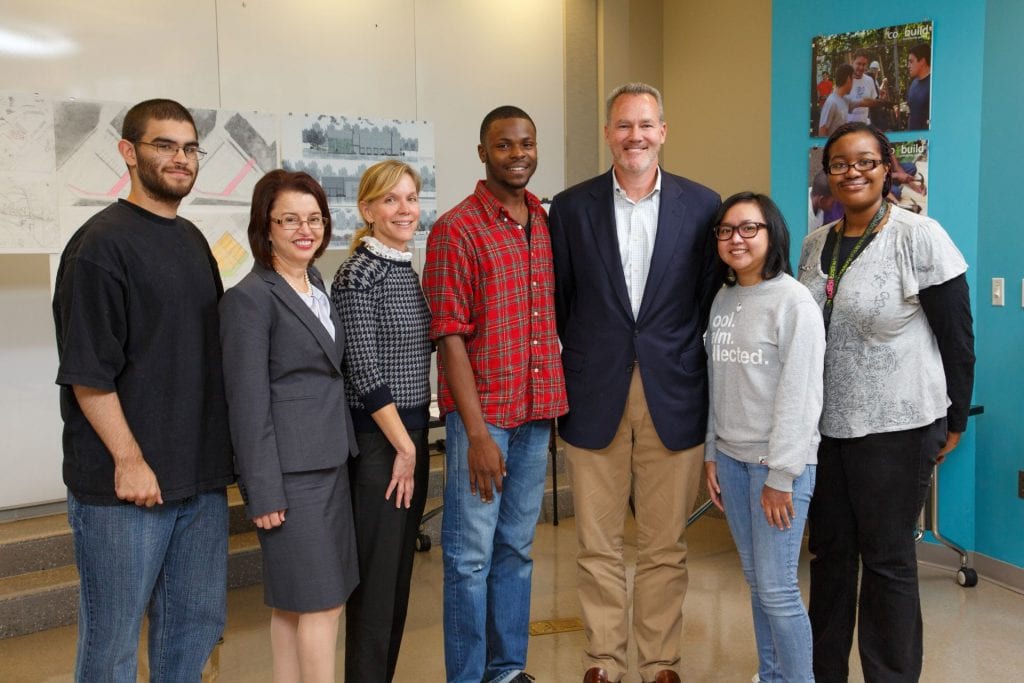BY DENNIS NEALON
PHOTOS BY HOPE RODRIGUEZ
In a tiny New Jersey borough just west of Manhattan, Alan Fournier, BSET ’83, Hon. ’10, and his family share their property with three dogs, nine horses, two donkeys, and three pigs. Abandoned as useless or too old, the animals had nowhere to go until Fournier, his four kids, and wife, Jennifer, took them in and saved their lives. The adoptions reflect something larger, which is Fournier’s increasing commitment to share his own amazing good fortune with those he calls “the systematically disadvantaged.”

Jennifer and Alan Fournier
The rescues, the donations that the family made to the Humane Society, and their support for St. Hubert’s Animal Welfare Center in Madison, N.J., comprise just one bucket for the Fournier family’s broadreaching philanthropic causes. In a recent interview with WIT magazine, Fournier talked about his Wentworth support, other charitable work, and plans to continue advancing education and changing lives.
“I hope to have an ongoing impact for a very long time.”
Now working privately with his own assets, capital investments, and charity annuity trusts, Fournier also funds veterans’ relief programs, including the Wounded Warriors Project. The latter holds special meaning: In addition to fulfilling a critical need, there is also the memory of his father, a decorated World War II veteran who was wounded in combat and suffered from Post-Traumatic Stress Disorder.
Educational Backing

Born into a lower-middle-class family, Fournier grew up in Danvers, Mass., the introverted son of a power plant worker and a mother who sold Tupperware and Avon products. He earned an associate degree and a bachelor’s degree in mechanical engineering at Wentworth in the early 1980s, worked for a time in computer sales, and joined Digital Corp. in New York.
He began amassing wealth when he pivoted to selling financial products and research on Wall Street. He worked for a firm called Sanford Bernstein and joined Appaloosa Management in 1996 to focus on global equity investments. Five years later, he founded his own company, Pennant Capital Management, and ran it until March 2018 when he went into a kind of quasi-retirement, returned client capital, and shut down operations at the $1.5 billion hedge fund.
Fournier’s tenacity in the investments arena brought financial success, which in turn transformed him into the philanthropic power hitter that he is today.
Did he imagine any of this back as an undergraduate at Wentworth? “No, no, no,” Fournier says. “I had no idea.”
Animal welfare is second on the top-five list of causes that Fournier and his wife have been supporting through grants from The Fournier Family Foundation Inc. Education is king. Besides helping less advantaged students and veterans with disabilities, Fournier has funded disaster relief and community programs in the local area. All told, he estimates that he and his family donated tens of millions of dollars over the past decade to causes and institutions including Wentworth. Since 2012, Fournier has funded scholarships and the RAMP bridge program to enable graduates of Boston public schools to attend the university. Supporting the KIPP New Jersey (Knowledge Is Power Program) initiatives and specifically advancing education opportunities for students in Newark and Camden are top priorities, as well.

Alan Fournier has long worked with Wentworth’s Center for Community and Learning Partnerships to help identify students for the Fournier Family Endowed Scholarship Fund, including those pictured in this October 21, 2013 photo. From left: Billy Ortiz, BMET ’16; President Zorica Panti?; Jennifer Fournier; Clifford Freeman, BSIS ’16, MSTM ’18; Alan Fournier, Malinda Som; and Abriana Nash, BCOS ’18.
Wentworth, where Fournier received an honorary degree in 2010, is entering into a partnership with KIPP to increase the number of students coming to the Institute through Fournier’s ongoing efforts. He endowed the Fournier Family Scholarship Fund at the university to support Boston residents and KIPP graduates who are hardworking, academically committed, and in need of tuition assistance to complete their degree. The scholarship follows students from freshman to senior year.
KIPP has helped 40,000 to 50,000 kids nationally, and up to 10,000 in Newark and Camden alone, according to Fournier. And there are plans to launch KIPP in Miami soon.
With his longtime associate David Tepper (who is a hedge fund manager, businessman, and philanthropist), Fournier also has allocated $3 million for a training program for public school principals in Jersey City, N.J.
“We should have a system where your zip code doesn’t determine your educational outcome or access to opportunity,” says Fournier. “Politically, we should be looking at how we create fairness in society. It’s a moral obligation in my view. We should be providing equal opportunity and we don’t, and that to me is really the civil rights issue of our time.”

